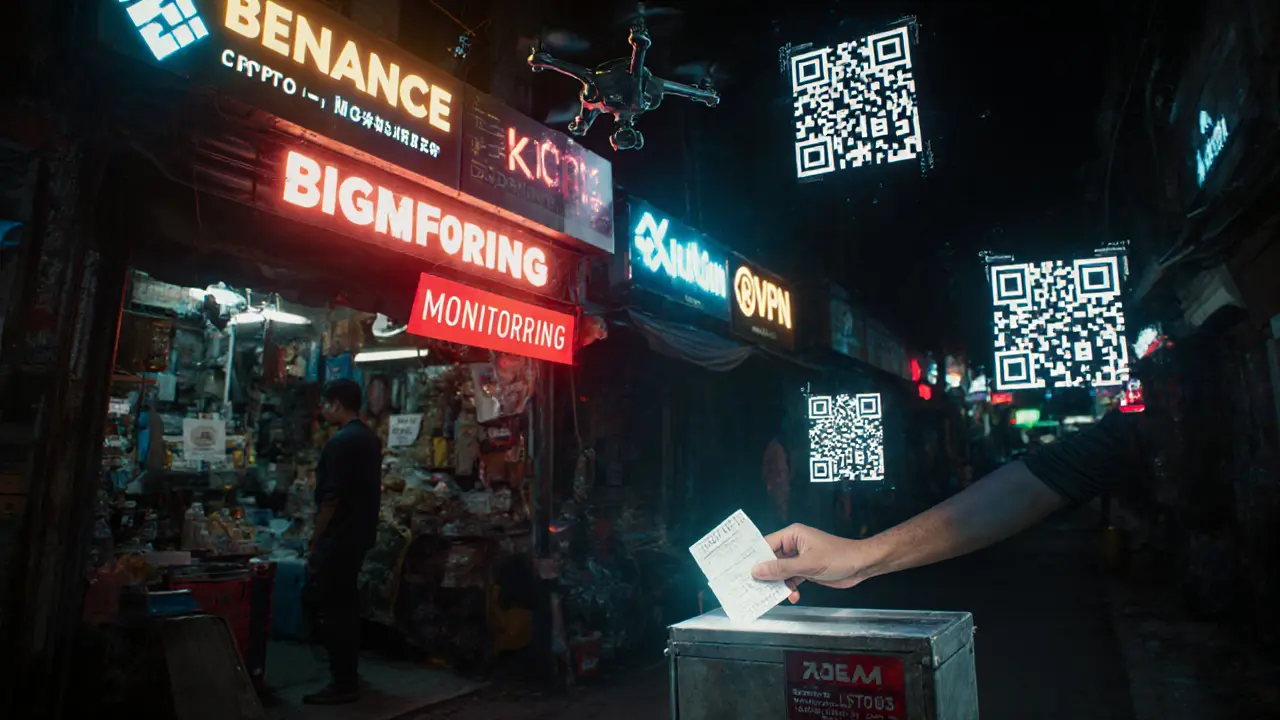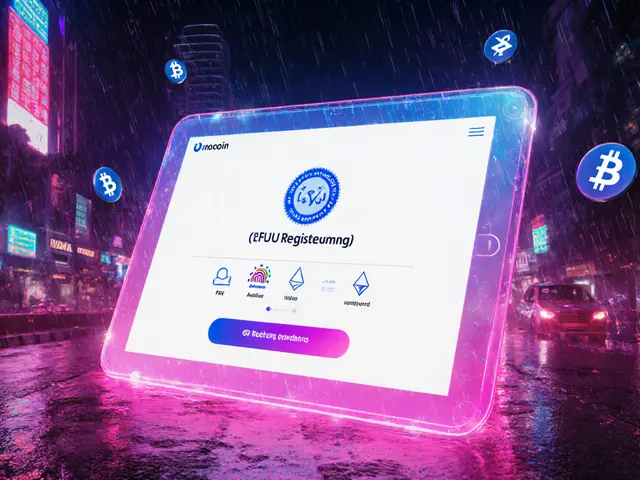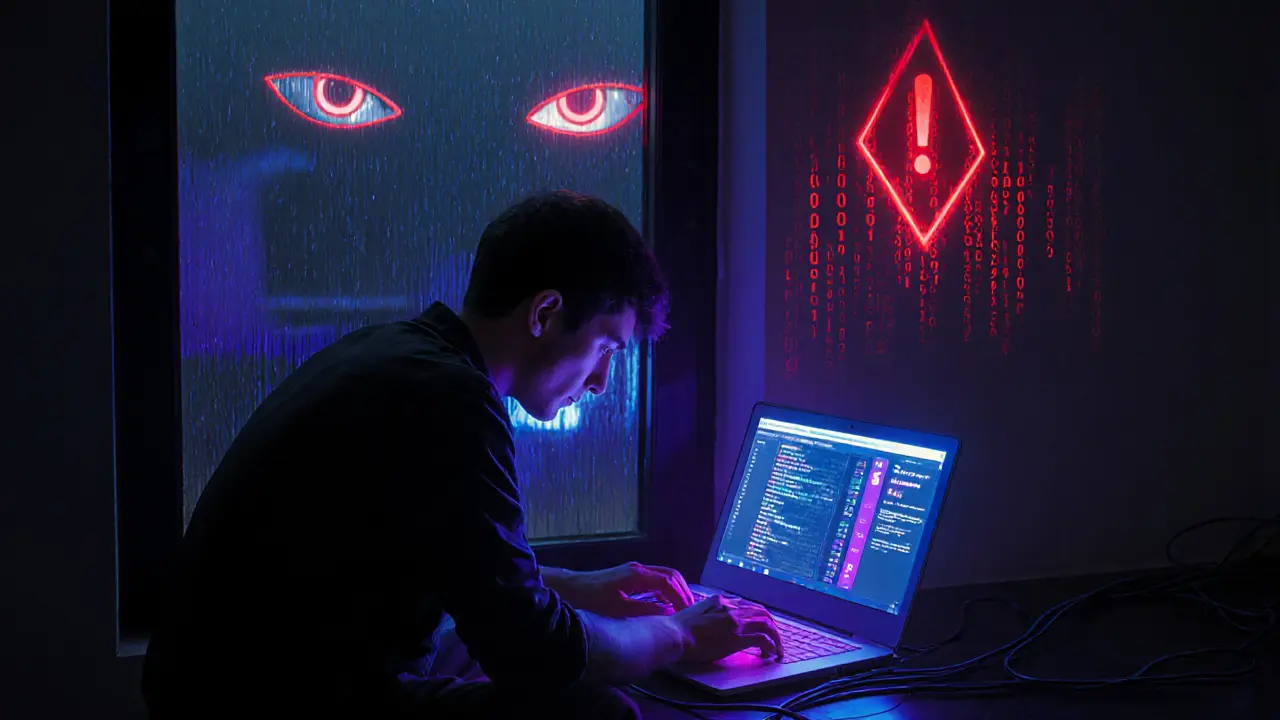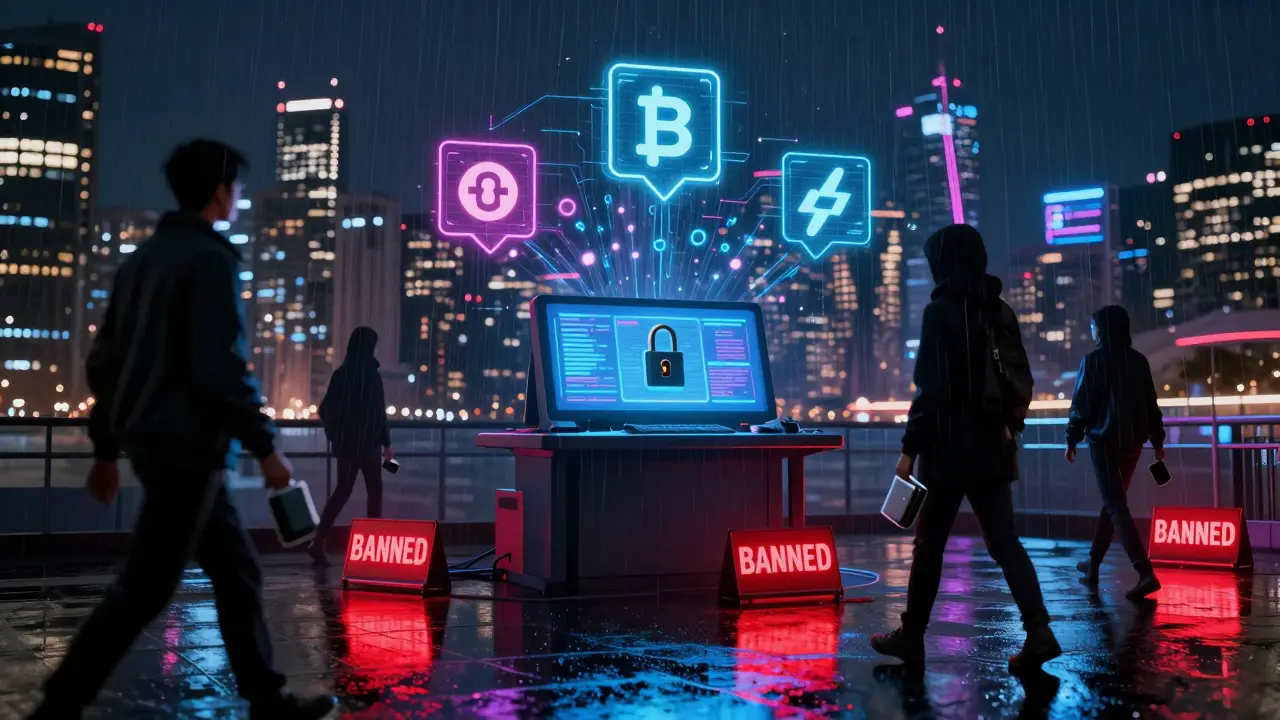Best VPN for Crypto Trading in Bangladesh
Compare the top VPN services for accessing crypto exchanges in Bangladesh. Based on user reports and performance tests, these services work reliably in Bangladesh while providing the security you need for trading.
VPN Comparison Table
| Feature |
ExpressVPN
$12.95/mo |
Surfshark
$2.49/mo |
NordVPN
$3.99/mo |
|---|---|---|---|
| Strongest Encryption | AES-256 | AES-256 | AES-256 |
| WireGuard Protocol | Yes | Yes | Yes |
| No-Logs Policy | Verified | Verified | Verified |
| Server Locations | 94 countries | 60+ countries | 118 countries |
| Crypto Payments | Yes | No | Yes |
| Bangladesh IP Access | No | Yes | No |
| Customer Support | 24/7 live chat | 24/7 live chat | 24/7 live chat |
| Daily Server Updates | Yes | Yes | Yes |
| Average Speed (Mbps) | 250 | 320 | 280 |
Key Takeaways
-
✓
ExpressVPN is the most reliable for consistent access to crypto exchanges like Binance and Bybit.
-
✓
Surfshark offers the best value and allows access to Bangladesh IPs if needed for local services.
-
✓
NordVPN provides the strongest security features including dark web monitoring.
Which VPN Should You Choose?
For most traders: ExpressVPN offers the best balance of speed, reliability, and privacy.
If you need to access local services: Surfshark allows you to select a Bangladesh IP address.
For maximum security: NordVPN includes extra features like dark web monitoring.
For many people in Bangladesh, buying Bitcoin or trading on Binance isn’t as simple as opening an app. The country doesn’t ban cryptocurrency outright, but it doesn’t officially allow it either. Banks block transactions to crypto exchanges. Some platforms like Bitfinex and Binance explicitly block users from Bangladesh. And with the Digital Security Act giving authorities broad powers to monitor online activity, many traders fear being tracked. So how do they do it? The answer is simple: VPN.
Why Bangladeshis Need a VPN for Crypto
You can’t just sign up for Binance from Dhaka and start trading. The platform detects your IP address and blocks you before you even get to the login screen. Same with Kraken, Coinbase, and others. It’s not about legality-it’s about compliance. Exchanges avoid countries with unclear or restrictive crypto policies to reduce legal risk. But here’s the real issue: privacy. The Digital Security Act lets the government monitor internet traffic. If you’re using your home Wi-Fi to buy Ethereum, your ISP could log it. Your bank might flag your account. Someone could link your real name to your wallet address. And since Bitcoin transactions are public, all it takes is one IP leak to expose your entire portfolio. A VPN hides your real IP. It replaces it with one from a country where crypto exchanges are fully open-like the U.S., Germany, or Singapore. Your traffic gets encrypted. No one sees what you’re doing. Not your ISP. Not the government. Not hackers. That’s why VPNs aren’t just useful-they’re essential for anyone serious about trading crypto in Bangladesh.Which VPNs Work Best in Bangladesh?
Not all VPNs are created equal. Some get blocked quickly. Others are slow. A few even log your data-which defeats the whole purpose. Based on real user reports and performance tests, three services stand out:- ExpressVPN: Works reliably in Bangladesh. Uses RAM-only servers so no data is stored. Has private DNS on every server. Offers 30-day money-back guarantee. Fast speeds mean you get real-time price updates without lag.
- Surfshark: One of the few that lets you pick a Bangladesh IP address if you need to access local services. Also unblocks Binance consistently. Unlimited device connections. Strong encryption and clean interface.
- NordVPN: Built for security. Scans the dark web for leaked wallet data. Blocks phishing links and malware. Accepts Bitcoin payments. Connects to 118 countries. Works well on phones, laptops, and even routers.
What to Look for in a VPN for Crypto
If you’re shopping around, don’t just pick the cheapest. Crypto trading demands specific features:- AES-256 encryption: The gold standard. Every major VPN uses this, but confirm it’s active.
- WireGuard protocol: Faster and more secure than older protocols like OpenVPN. Reduces lag during fast trades.
- No logs policy: The provider must not store your browsing history, IP, or timestamps. Check their privacy policy.
- Server locations: You need servers in countries where exchanges aren’t blocked. U.S., U.K., Germany, Japan, and Singapore are top picks.
- Cryptocurrency payments: If you want to stay anonymous, pay with Bitcoin or USDT. NordVPN and ExpressVPN accept crypto.
- Customer support: If a server stops working, you need live chat that responds fast. Avoid VPNs with only email support.

How to Set Up a VPN for Crypto Trading
It’s easier than it sounds. Here’s a step-by-step guide:- Choose a VPN from the list above. Sign up using your email or, better yet, a burner email.
- Pay with Bitcoin or USDT if possible. That keeps your identity separate from the purchase.
- Download the app from the official website-not the Google Play Store or Apple App Store. Some apps get pulled in Bangladesh.
- Install it on your phone and laptop. Use the same account on both.
- Open the app and connect to a server in the U.S. or Germany.
- Open your crypto exchange (Binance, Bybit, KuCoin) and log in.
- Start trading. Check your IP address on a site like whatismyip.com to confirm it’s showing the VPN location.
What Happens If Your VPN Gets Blocked?
Exchanges are always updating their blocklists. Sometimes, a server gets flagged. If you suddenly can’t log in:- Switch to a different server in the same country.
- Try a different country altogether-try the Netherlands or Canada.
- Clear your browser cache and cookies. Restart your device.
- Use the VPN’s obfuscation feature (called “Stealth” or “Camouflage” mode). It hides the fact you’re using a VPN.
- Contact customer support. Most top VPNs have live chat and will fix the issue within minutes.

Security Tips for Crypto Traders in Bangladesh
Using a VPN is just the first step. Here’s how to stay safe:- Never store your seed phrase on your phone or computer. Write it on paper. Keep it in a safe.
- Use a hardware wallet like Ledger or Trezor for large holdings.
- Enable two-factor authentication (2FA) on your exchange account. Use an authenticator app like Authy-not SMS.
- Don’t click links in emails or Telegram groups claiming to offer “free crypto.” They’re phishing traps.
- Use NordVPN’s Dark Web Monitor to check if your email or wallet address has been leaked.
- Never use public Wi-Fi for trading. Even with a VPN, public networks are risky.
Is Using a VPN Legal in Bangladesh?
There’s no law that says “you cannot use a VPN.” The government bans certain websites, not tools. Many people use VPNs to access blocked news sites, academic journals, or streaming services. Crypto traders are just using the same tool for a different reason. That said, if you’re caught trading crypto and the authorities suspect illegal activity, they might investigate your internet usage. That’s why privacy matters. A no-logs VPN means there’s nothing for them to find. The bottom line: Using a VPN isn’t illegal. Getting caught with unexplained crypto profits might be.What’s Next for Crypto in Bangladesh?
The government hasn’t legalized crypto. But it hasn’t shut it down either. Banks still block transactions. Exchanges still block IPs. Yet millions of Bangladeshis are still trading-through VPNs, peer-to-peer apps like Paxful, and local OTC traders. As crypto becomes more mainstream, pressure will grow for clearer rules. Until then, the tools that work today will keep working tomorrow. The key isn’t waiting for permission. It’s staying informed, staying private, and staying secure.For now, the best move is simple: get a reliable VPN, protect your identity, and trade smart.
Can I use a free VPN to access crypto exchanges in Bangladesh?
Free VPNs are risky. Most log your data, sell your bandwidth, or can’t bypass modern geo-blocks. Some, like Proton VPN’s free tier, offer decent privacy and unlimited data-but they’re often too slow for trading and may not consistently unblock exchanges. For crypto, it’s better to invest in a paid service with strong encryption, no logs, and fast speeds.
Does using a VPN make crypto trading legal in Bangladesh?
No. A VPN hides your IP address, but it doesn’t change the legal status of crypto in Bangladesh. The central bank hasn’t approved cryptocurrency as legal tender, and banks still block transactions. Using a VPN reduces your risk of being tracked, but it doesn’t make your activity officially legal. Be aware of the risks.
Which crypto exchanges work with a VPN in Bangladesh?
Exchanges like Binance, Bybit, KuCoin, and OKX can be accessed via VPN if you connect to a server in a country where they’re not blocked-like the U.S., Germany, or Singapore. Bitfinex and Coinbase still block Bangladesh even with a VPN. Always test with a free trial first.
Can I pay for a VPN with cryptocurrency in Bangladesh?
Yes. NordVPN and ExpressVPN accept Bitcoin, USDT, and other cryptocurrencies via CoinGate. This keeps your payment separate from your bank account and adds another layer of anonymity. Avoid using credit cards or bKash for VPN payments if you want to stay private.
Why does my VPN keep disconnecting when I try to trade?
This usually happens if the exchange detects your VPN IP as suspicious. Try switching to a different server in the same country. Use the VPN’s obfuscation mode if available. Also, make sure your device’s time and date are correct-wrong settings can break encrypted connections. If it persists, contact your VPN’s support team-they can suggest a working server.
Is it safe to use a VPN on my phone for crypto trading?
Yes, as long as you use a trusted app from the official website and not the Play Store. Many top VPNs have mobile apps with the same security as desktop versions. Always enable the kill switch feature so your real IP doesn’t leak if the connection drops. Never trade on public Wi-Fi-even with a VPN.






Comments
16 Comments
Elizabeth Mitchell
Been using ExpressVPN for my Binance trades since last year. No issues, no leaks. Just connect, trade, disconnect. Simple.
Steve Roberts
Oh great, another post telling people how to circumvent laws under the guise of 'privacy'. You're not a hacker, you're a rule-breaker with a subscription. And no, using a VPN doesn't make you morally superior-it just makes you harder to catch.
John Dixon
Wow. Just... wow. So we're now endorsing digital vigilantism? 'Oh no, my bank won't let me buy Dogecoin!' Cry me a river, then go buy a VPN. Next you'll be telling me you need a satellite dish to access TikTok because your grandma blocked it.
Brody Dixon
I get it-people in Bangladesh are just trying to protect their money in a system that doesn't trust them. This isn't about breaking rules. It's about survival. If you’ve never had to fight for financial access, it’s easy to judge. But for so many, this is the only way to build something real.
Mike Kimberly
It’s important to recognize that the use of VPNs in this context is not an act of defiance against morality, but rather an adaptation to systemic exclusion. In countries where financial infrastructure is either hostile or indifferent to emerging economic tools, individuals naturally gravitate toward technological workarounds that preserve autonomy. This phenomenon mirrors historical precedents-from underground publishing during authoritarian regimes to the use of proxy servers during early internet censorship. The underlying impulse is not criminality, but agency. And while legal gray areas persist, the ethical imperative lies in enabling access to tools that empower economic self-determination, not in policing the means by which the marginalized navigate oppressive structures.
angela sastre
Just a heads-up: if you're new to this, don't use the app stores to download your VPN. Go straight to the website. I learned that the hard way-got a fake app that slowed my whole phone. ExpressVPN's site is easy to use, and they even have a video guide. You got this!
Will Atkinson
Love how people act like using a VPN is some kind of secret hacker move… it’s literally just changing your location online. Like wearing a hat to hide your face at the grocery store-except here, you’re just trying to buy crypto without your ISP giving you side-eye. Chill out. It’s tech, not treason.
monica thomas
May I inquire as to the veracity of the claim that NordVPN accepts cryptocurrency payments via CoinGate? I would appreciate a citation from their official Terms of Service or Payment Policy document, as the integrity of such information is paramount when considering financial privacy protocols.
Edwin Davis
Why are we helping people in Bangladesh bypass their own government? This isn't freedom-it's enabling chaos. If they don't like their laws, move to a country that lets you trade freely. Don't turn your phone into a digital weapon against your own nation.
emma bullivant
i think the real issue is that banks are scared of crypto… not the people… but also… like… what if the vpn gets hacked? and then your wallet is gone? and you cant get it back? like… its not just about ip… its about trust… right?
Michael Hagerman
Bro. I used Surfshark for 6 months straight. One day-BAM. Binance says 'suspicious login'. I switched servers. Didn't work. Tried Canada. Still blocked. Then I cleared cookies, rebooted my router, and connected through NordVPN’s obfuscation mode. Got in. Took me 47 minutes. I cried. Then I bought 0.02 BTC. Worth it.
Laura Herrelop
Think about this: what if the VPN providers are secretly working with the government? What if ExpressVPN is just a front for the NSA? They collect your data, then sell it to the Bangladesh cyber police. That’s why they offer free trials. They’re testing you. Your wallet address is already known. Your IP? They don’t need it. They’ve been tracking your wallet since you first typed 'Binance' into Google.
Nisha Sharmal
Wow. So now Americans think they know how to fix Bangladesh’s problems? We have our own ways. Why do you assume we need your VPN recommendations? We use P2P, local traders, and cash. You’re not helping. You’re patronizing.
Karla Alcantara
Thank you for writing this. I know it’s scary to even think about trading crypto where the rules aren’t clear. But you’re not alone. So many people are doing this quietly, safely, and smartly. You’re doing the right thing by learning how to protect yourself. Keep going.
Jessica Smith
This post is dangerous. You’re giving step-by-step instructions on how to evade financial oversight. That’s not privacy-that’s laundering. If you’re trading crypto in Bangladesh, you’re already breaking the law. This isn’t a how-to guide. It’s a how-to-get-caught guide.
Jennifer Rosada
While I appreciate the technical guidance provided, I must emphasize that the ethical implications of circumventing state-regulated financial systems warrant serious consideration. The absence of explicit prohibition does not equate to tacit authorization. One must weigh personal convenience against the broader societal consequences of undermining institutional integrity.
Write a comment